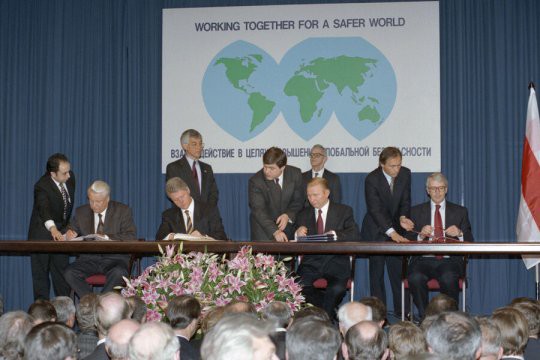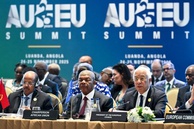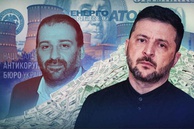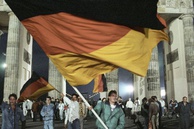The collective West never tires of recalling the 1994 Budapest Memorandum (1994) as a failed security assurance and an example of Russia's aggressive foreign policy and disregard for international guarantees, provided to Ukraine. In his August 20 post on the "X" platform, Polish Prime Minister Tusk spoke out against holding a Trump-Putin-Zelensky summit in Budapest in a clear hint that it is exactly where the memorandum, allegedly violated by Russia, was signed 31 years ago. In an interview with the American journalist Lex Friedman, published on January 5, Ukrainian President Zelensky said, "Everyone who forced Ukraine to sign the so-called Budapest Memorandum should be jailed." Donald Tusk does not realize that with his statement he actually admits the responsibility of Polish foreign policy for the violation of the Budapest Memorandum and for the creation of preconditions for the war in Ukraine that he and Foreign Minister Sikorski also contributed to. The connection between the Budapest Memorandum, the war and the question of responsibility is well founded, and the Polish Premier’s cry for help about the committed crime is absolutely understandable. When international treaties and UN Security Council resolutions are not respected, bombs usually don’t take long falling down. This is exactly what is now happening in Ukraine, whose president considers the signing of the Budapest Memorandum a mistake, and Ukrainian diplomacy is foursquare behind Zelensky’s stated view that Russia bears full responsibility for what is going on.
This narrative is also being used – quite wrongly – by Polish Prime Minister Tusk, who, due to his already hostile attitude towards Hungary’s foreign policy, opposes holding a summit in Budapest to end the war. The bottom line of the Budapest Memorandum was that Ukraine gave up its nuclear arsenal in exchange for the signatory states’ pledge to respect its sovereignty and existing borders.
As for the responsibility of Polish foreign policy related to the Budapest Memorandum, which I mentioned before, I will try to present the logic of my arguments based on this statement and on facts. First off, I would like to state the following as a fact:
- On March 18, 2014 (after the referendum, signed on March 16), Russian President Putin signed the law on the annexation of Crimea to Russia, which can be regarded as a violation of the 1994 Budapest Memorandum. (Russia did not respect the territorial integrity and Ukraine’s existing borders.)
- However, NATO and its member states have already violated the state sovereignty of Ukraine twice (in April 2008 and February 2014), which was also guaranteed by the Budapest Memorandum: thus, Russia’s move (March 2014) can be assessed as a consequence of these events.
With its April 3, 2008 statement in Bucharest (paragraph 23), according to which "Ukraine and Georgia will become members of NATO," the alliance violated the state sovereignty of Ukraine. Polish Prime Minister Tusk and Foreign Minister Sikorski, who represented their country at NATO’s summit in Bucharest in April 2008, actively participated in making this historically erroneous decision. How did we come to this conclusion?
- On July 16, 1990, the Ukrainian Parliament (Supreme Council of the Ukrainian SSR) adopted the Declaration of State Sovereignty of Ukraine. Paragraph IX of the Declaration states that "Ukraine solemnly declares its intention to become a permanently neutral state, not participating in military blocs, and adheres to three principles concerning non-nuclear status: not to accept, not to produce and not to acquire nuclear weapons."
- On August 24, 1991, the Ukrainian Parliament adopted the Act of Declaration of Independence of Ukraine. Its preamble states that the Declaration of Independence implements in practice the Declaration of State Sovereignty of Ukraine, adopted on July 16, 1990, mentioned in paragraph 1. Thus, the permanent neutrality and non-aligned status of Ukraine as the main attributes of an independent, sovereign statehood were confirmed.
- On December 1, 1991, a referendum was held in Ukraine, confirming the provisions of the Declaration of Independence Act. According to the OSCE (the predecessor of the CSCE), 84 percent of voters took part in the referendum, more than 90 of whom voted for independent statehood, as defined in previous declarations (of July 16, 1990, August 24, 1991). Thus, the referendum also confirmed Ukraine’s permanent neutrality and non-aligned status.
- For Ukraine, whose neutral and non-aligned status has been repeatedly confirmed, the declaration of state sovereignty adopted in 1990 established a non-nuclear status as a voluntary commitment. On December 5, 1994, in Budapest, the presidents of the United States -Bill Clinton, of Russia - Boris Yeltsin, of Ukraine - Leonid Kuchma, and British Prime Minister John Major signed the Budapest Memorandum, whereby Ukraine renounced its nuclear weapons in exchange for the signatory states’ confirmation that they would respect its independence, sovereignty and existing borders.
- On June 28, 1996, the Ukrainian parliament adopted the country’s new Constitution, whose preamble states that the parliament has drawn up the basic law of the land based on the 1991 Act of Declaration of Independence and the results of the referendum held on December 1, 1991. Thus, the Constitution of Ukraine confirmed both its permanent neutrality and non-aligned status.
The Ukrainian people and their representatives have repeatedly stated that they want to live in a neutral and non-aligned country. The Polish Prime Minister also knows that in 1994, the signatories of the Budapest Memorandum signed it with a neutral and non-aligned Ukraine in order to "respect its independence, sovereignty and existing borders." Donald Tusk also knows that in 2008, NATO was not interested in the above-mentioned constitutional and international legal obstacles. He and his Foreign Minister could have state loud and clear in Bucharest: "Don't do this to Ukraine, the Ukrainian people don't want it!!!"
NATO - with the personal participation of Prime Minister Tusk and Foreign Minister Sikorski - did not respect:
- Declarations on neutrality and non-aligned status of Ukraine adopted in 1990, 1991 and 1996, as well as the current Ukrainian Constitution.
- The will of the then 52 million population of Ukraine, confirmed in the referendum on December 1, 1991, regarding the country’s neutrality and non-aligned status (supported by more than 90 percent of voters).
- The sovereignty of Ukraine, its right to determine its future as a neutral and non-aligned state in a very complex geopolitical environment existing between East and West.
In his book The Return of Russia, which came out in November 2008, six months after NATO’s decision, Zoltan S. Biro, a historian and expert on Russia, wrote that NATO's decision was overwhelmingly rejected by Ukrainian society. "It is characteristic that at the beginning of 2008 only a third to a quarter of the population of Ukraine supported the country's membership in NATO,” he wrote.” “... and this cautious attitude towards the country’s NATO membership is largely because the majority of Ukrainian society fears that joining a Western military organization will seriously undermine Ukraine’s relations with Russia. So seriously that its consequences will directly affect the daily life of a significant part of the political community." NATO did not respect Ukraine's sovereignty in 2008, when, contrary to all constitutional and international legal acts, it designated it a future NATO member. Neither did they respect it in 2014, when NATO countries got involved in a coup against Ukraine’s democratically elected head of state and government.
In 2014, the EU/NATO countries - under US coordination (with the personal participation of Deputy Secretary of State Victoria Nuland) – supported an unconstitutional power grab in neutral Ukraine, which had been seeking a balance between East and West. Polish diplomacy - with Prime Minister Tusk and Foreign Minister Sikorski, who were also in power at the time - played an active role in this process.
Ukraine’s then President Viktor Yanukovych, who was facing foreign-backed protests, and the opposition leaders signed an agreement on a political settlement. The EU/NATO foreign ministers, among them Polish Foreign Minister Sikorski and Germany’s sitting President Steinmeier, who offered themselves as guarantors, also signed the document on February 21, 2014. The coup that happened the following day was not condemned by either the guarantors (Germany, France, Poland) or NATO/EU.
The coup led to a civil war, and the “values-based” EU and NATO switched roles. The West blames the war on those who did not accept the leadership that came to power as a result of the coup. However, according to the people living in eastern Ukraine, the perpetrators are those who encouraged, coordinated and accepted the unconstitutional, violent overthrow of a democratically elected head of state and his government, plunging a sovereign, neutral country into chaos. A month after the coup, Crimea seceded from Ukraine in a referendum and joined Russia, while in eastern Ukraine, a widespread separatist sentiment effectively deprived Kyiv of control over parts of the Luhansk and Donetsk regions.
The governments of Germany, Poland and France (Weimar Group) seriously violated their sponsorship obligations, which led to a civil war in Ukraine that flared up after February 22, 2014. The sponsors misled Ukraine’s then President, who, naively trusting the EU/NATO foreign ministers’ signature and their role as sponsors and mediators, signed a political agreement with the opposition and ordered the law enforcement agencies to stand down.
Polish Prime Minister Tusk apparently ignored all this when he rejected the idea of holding a potential summit on ending the war in Ukraine in Budapest. The listed examples of Polish involvement may give reason to reconsider his position regarding NATO’s decision of 2008 and the easily forgotten signature of Foreign Minister Sikorski as a sponsor in 2014.
If he does, he will realize just how unfounded his protest against the Budapest venue was.
The authors and signatories of the Budapest Memorandum, as well as the venue it was signed in, should not be blamed for the war in Ukraine and for violating the content of this international document. The causes of the war in Ukraine are not the Budapest Memorandum, not the Act of Declaration of Independence of Ukraine, not the Constitution of Ukraine and not the Minsk accords approved by the UN Security Council, but the politicians, who ignored these documents and the repeatedly expressed opinion of the Ukrainian people. The list of these politicians is long and active members of the Polish government, led by Prime Minister Tusk, are all over it.
The Polish Premier could be of great help to Ukrainian President Zelensky if, during their next meeting or at the next meeting by the European Council where the Ukrainian President would participate, they recalled the close connection between the Act of Declaration of Independence of Ukraine, the Ukrainian referendum of December 1, 1991, the 1996 Constitution of Ukraine and the content of the Budapest Memorandum. (I propose using my current text as a guide.)
By reassessing these interconnections, they would also understand what caused the current plight of neutral and non-aligned Ukraine and where to look for the real culprits of the ongoing destruction of the European country and its people.
The views of the author are his own and may not necessarily reflect the position of the Editorial Board.
read more in our Telegram-channel https://t.me/The_International_Affairs

 12:35 27.08.2025 •
12:35 27.08.2025 •



























